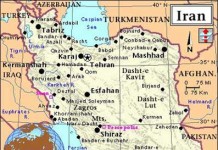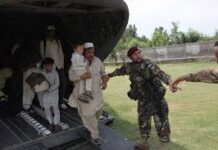Context
 The US-Pakistan and Pakistan-Afghanistan ties are entering a new phase. In this emerging stage, their ties at some level are hampered down by the lingering effect of the past, but at the same time are moving ahead, despite the blame game. A new Pentagon report that came out on December 10 is an example of the effect. The report blames Pakistan for the sanctuaries in FATA to which Afghan Taliban can retreat:
The US-Pakistan and Pakistan-Afghanistan ties are entering a new phase. In this emerging stage, their ties at some level are hampered down by the lingering effect of the past, but at the same time are moving ahead, despite the blame game. A new Pentagon report that came out on December 10 is an example of the effect. The report blames Pakistan for the sanctuaries in FATA to which Afghan Taliban can retreat:
“The availability of sanctuary inside of Pakistan enables key elements of the insurgency to remain potent and threatening, including the Afghan Taliban and the Haqqani Taliban network.”
While these charges continue to be leveled, a new Afghan led political process appears to be moving ahead. As part of this process, Pakistan recently released a few Taliban prisoners. Moreover, a tripartite meeting of the presidents of Afghanistan, Pakistan and Turkey is being held in Ankara but has been marred by the attack on Afghan intelligence chief, Asadullah Khalid. President Karzai has claimed the planning for the attack took place in Quetta.
Just as Afghan reconciliation appears to gain a little momentum, statements and reports emerge, and events occur that push the process towards derailment. Nonetheless, what are the causes of this blame game? The finger pointing usually heats up when one or the other following conditions come true:
• Pakistan-Iran gas pipeline cooperation speeds up.
• At a time of a major congressional hearing in the US.
• Political and media debate on the efficacy of Afghan war heats up with in the US, ultimately leading to a tussle between those seeking a political solution and the hardliners.
• An event takes place that depicts the failure of Afghan security apparatus and that it’s not ready to take on the security responsibility of the country, despite NATO training.
• Whenever the ties between Karzai and US deteriorate acutely. Karzai has in recent days directly blamed NATO forces for the worsening situation of Afghanistan. He further commented that the terms of the strategic pact between US and Afghanistan were being violated by the US.



